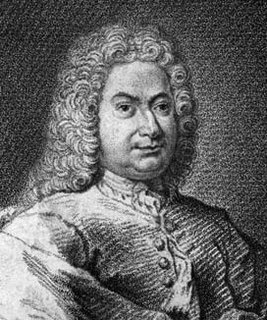 Johann Bernoulli was born July 27, 1667 in Basel Switzerland. He was the tenth born child of a wealthy, prominent Swiss family. His father tried to interest him in the thriving family spice business but it did not work out. When Johann was 15, he began working for his father's company but this only lasted a year.
Johann Bernoulli was born July 27, 1667 in Basel Switzerland. He was the tenth born child of a wealthy, prominent Swiss family. His father tried to interest him in the thriving family spice business but it did not work out. When Johann was 15, he began working for his father's company but this only lasted a year.Johann started at the University of Basel in 1683. His father encouraged him to study medicine. His older brother Jacob had already begun to make a name for himself in mathematics and physics. Johann soon took an interest to math and studied under his brother's guidance. For two years, the brothers studied the new methods of Gottfriend von Leibniz which had recently been published. Johann showed a tremendous ability for the new mathematics and after these two years, in many ways became the mathematical equal of his more experienced, older brother.
In 1690, Johann published his first scientific paper on the process of fermentation. Later, in 1691, he went to Geneva to lecture on the new differential calculus. He traveled to France, like his brother had, and met with the followers of Rene Descartes who were led by Nicolas Malebranche. In France, Johann met Gillaume Francois Antoine Marquis de L'Hopital who was considered one of the finest of the Paris mathematicians. Johann taught L'Hopital about the calculus and Leibniz's methods. L'Hopital paid Johann well for the lessons and Johann continued the lessons via correspondence after he returned to the University of Basel.
Even while Johann studied medicine, he was continually publishing mathematical papers. He even began a very substantial correspondence with Leibniz on the ideas of calculus. In 1694, when Johann submitted his paper on medicine, the content of the paper was the mathematics of muscular movement.
He continued to generate significant mathematical papers and in 1695, he was offered the chair of mathematics at Groningen. This was offered based on the recommendation of Christiaan Huygens. Johann was glad to accept even though the move to Groningen was difficult.
While in Groningen, he got involved in many controversies. One of his medical lectures was criticized as casting doubt on the possibility of ressurection. One of his students accused him of abandoning Calvinism in order to embrace the philosophy of Descartes. Johann and his brother Jacob also began a fierce rivalry as each brother tried to outdo the other.
L'Hopital would later publish the first book on calculus. This book contained the famous L'Hopital's Rule which may have come from Johann Bernoulli.
Johann became a bit bothered by L'Hopital's book because he did not feel that it paid him proper acknowledgment. L'Hopital wrote in the book (quoted on the MacTutor web site):
And then I am obliged to the gentlemen Bernoulli for their many bright ideas; particularly to the younger Mr Bernoulli who is now a professor in Groningen.When L'Hopital died in 1704, Johann insisted that most of the content of the book had been taken from him. At the time, few believed him. In 1922 (according to the MacTutor web site), evidence surfaced which substantiated Johann's claims which included mathematical proofs that were virtually identical to the proofs included L'Hopital's book.
Johann had married shortly before moving to Gottigen and in 1705, he learned that his father-in-law was very sick and not expected to live much longer. Johann and his family moved back to Basel. Once there, he learned that his father-in-law had made a recovery but his brother Jacob had died of tuberculosis. Johann decided to stay in Basel and took over after his brother as the Chair of Mathematics at the University of Basel.
In 1713 when Leibniz and Sir Isaac Newton quarrelled about who came first with regard to calculus. Johann weighed in on the size of Leibniz. Johann argued that Leibniz's methods were more powerful than Newton's (a position that is generally supported today) and that Descarte's theory of vortex was superior to Newton's theory of gravitation. This controversy has been documented in a new book that came out this year.
Three of Johann's sons would go on to become famous mathematicians. In 1734, his son Daniel published what would become one of his most important books. Johann proceeded to publish his own version of the same topic and claimed to have finished it in 1732. It is interesting that such a giant in mathematics would feel the need to compete with his own son.
Johann died on January 1, 1748 in Basel, Switzerland. At this time, his fame was giant. His contributions had been recognized by the scientific academies of Paris, Berlin, London, St. Petersburg, and Bologna.
References
- Biography of Johann Bernoulli, MacTutor

No comments:
Post a Comment